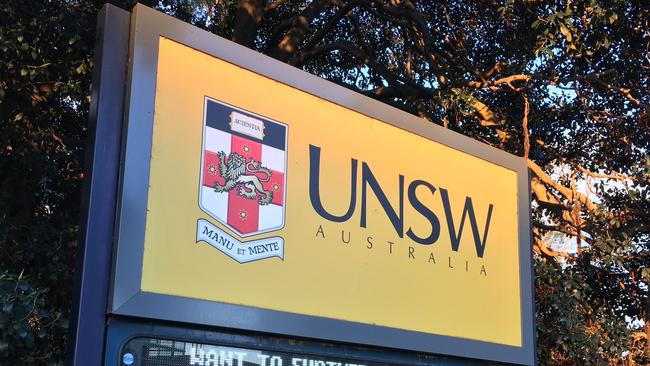To ease student stress UNSW will not record fail grades this term
This term UNSW will not record the grades of students who fail, so students having difficulties due to the coronavirus are not penalised.

UNSW will not penalise students who fail courses this term, as part of an effort to relieve stress on students who have been disrupted by the coronavirus and the rapid shift to online only classes.
This means that a student who fails a course will not see an “F” on their transcript – which records each student’s academic performance – and nor will it affect their grade point average.
“We’re not recording fail grades because we realise that some students have been really disrupted,” said UNSW deputy vice-chancellor (academic) Merlin Crossley.
The university is concerned, for example, that if a student does not have suitable conditions to study online at home, they will be disadvantaged compared to other students. But students who fail will still be required to repeat.
With normal exams abandoned this term because of the ban on large gatherings, most UNSW students will do “take home” assessments online, which will not be invigilated.
Furthermore many UNSW students – including in science, engineering and maths – will be assessed on a simple pass/fail basis this term, instead of the usual categories of pass, credit, distinction and high distinction.
“In many courses, the standard grades will be changed to a simple ‘successful’ grade to indicate the learning outcomes have been achieved,” the university said in a statement to The Australian.
UNSW, because of its three term system, is one of the first Australian universities to face the challenge of assessing students without normal exams.
Other universities intend to continue with invigilated exams conducted online, using proctoring services which require students to allow an online invigilator to inspect their room via a camera and be subject to camera surveillance while doing the exam.
The University of Sydney decided to use online exam platform ProctorU to run exams this semester. But a petition against the move – which has gathered 4000 signatures – said students were “appalled”, citing privacy concerns and inequity for students who were “unwilling or unable to provide long recordings of themselves” to the company.
However University of Sydney vice-chancellor Michael Spence told students in an email last Friday that the platform would only require basic information such as name, email, physical address and phone number “and in most cases will not require access to your computer during a test”.
UNSW is not alone in using a pass/fail grading system during the coronavirus crisis. A number of top universities in the world – including Harvard, Yale and the National University of Singapore – have done the same.
However Dr Spence also told students last Friday that the University of Sydney would not be adopting a similar system. It would “continue to use our existing grading system so we are able to recognise the standard of students’ work in a nuanced way”.
“All students and staff have been affected by the health crisis, and your lecturers and tutors will make every effort to take this into account in ways that are specific to your particular unit of study,” Dr Spence said.
University of Sydney student representative council president Liam Donohoe said the SRC was not supportive of pass/fail, viewing it as a blunt instrument and although it knew students were concerned about ProctorU – which was introduced to the university very recently – the SRC was not the author of the petition against it.
“What we’re trying to achieve is ways for students with genuine, principled or technical objections to the use of that software to have alternate assessments and to not be disadvantaged or punished for objecting to it,” Mr Donohoe said.
The University of New England, which has long experience in delivering online education uses ProctorU and Jennifer Lawrence, its program director of academic success, said it was important for students to have practice exams and get used to the platform, in order to allay their fears.
“I would suspect in the case of University of Sydney that because coronavirus has hit us so quickly they haven’t had time to do that yet and that’s causing a huge amount of anxiety for their students,” she said.


